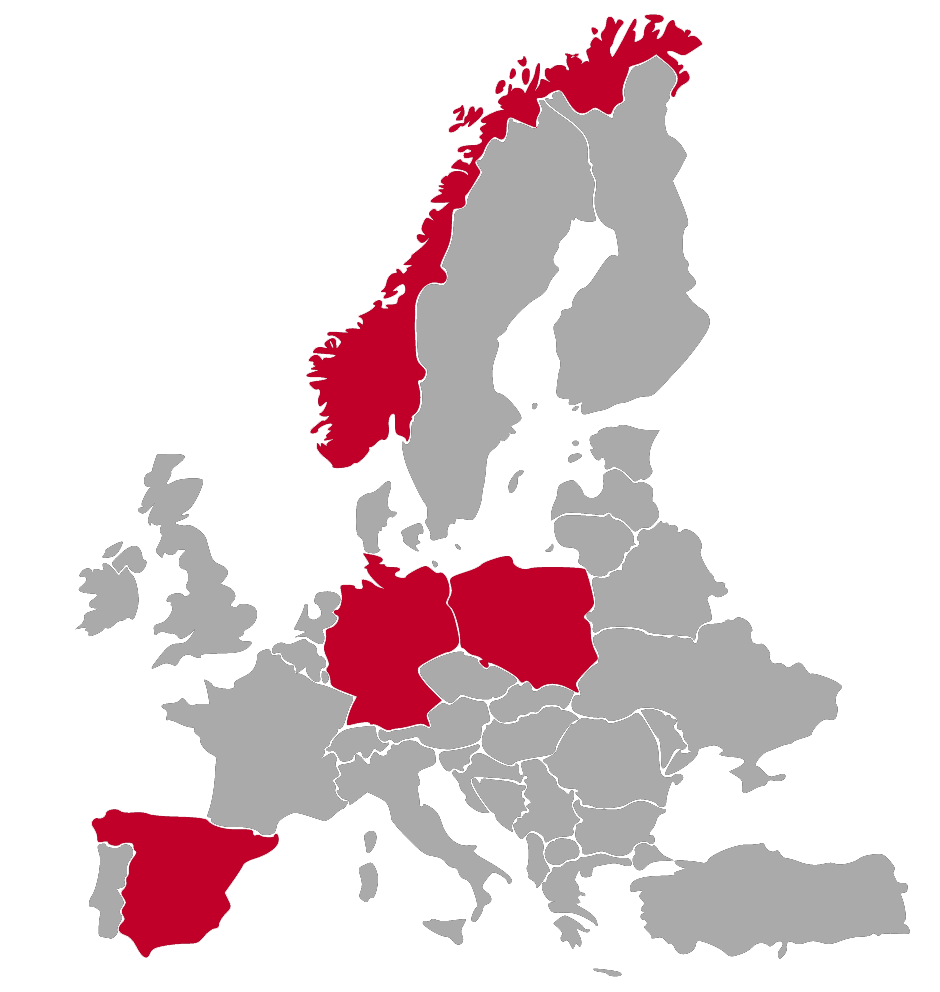Methodology
We approach our research object by using a mixed-method research strategy consisting of three methodological steps:
- a quantitative text analysis of the media representation of European competitions in football related online media to assess media representations of national and European competitions in specialist media
- an online panel survey of fans and non-fans on Europe to measure the dimensions of communities of belonging and frames of reference as well as compare identity formations between countries and with non-fans
- expert interviews with actors from clubs, associations and fan organisations actively involved in fan work to identify current practice and future opportunities for actively promoting European awareness and cohesion
With this approach we combine quantitative with qualitative steps and seek to comprehensively investigate the processes of identity formation and its role for social cohesion across Europe.
Case selection
 The research project examines four countries in Europe: Germany, Norway, Poland and Spain. This case selection ensures that the units of analysis vary along a set of potentially influential variables such as their national league’s competitive context, their geographical location, cultural and historical factors and their connection to the EU. The case selection reflects the great diversity and heterogeneity of football fandom in Europe. We will investigate the selected countries with the assistance of local academic partners from the University of Valencia, University of Gdansk and the University of Oslo.
The research project examines four countries in Europe: Germany, Norway, Poland and Spain. This case selection ensures that the units of analysis vary along a set of potentially influential variables such as their national league’s competitive context, their geographical location, cultural and historical factors and their connection to the EU. The case selection reflects the great diversity and heterogeneity of football fandom in Europe. We will investigate the selected countries with the assistance of local academic partners from the University of Valencia, University of Gdansk and the University of Oslo.
Results
The project has produced significant and novel results that illustrate the impact of professional club football on European identity and social cohesion. These results include:
- Football as a Social Cohesion Tool: Football has shown promise as a means to enhance social cohesion in Europe by providing a platform for diverse audiences to engage in a shared leisure activity and promote cooperation among nations.
- European Public Football Sphere: The convergence of football coverage across national media spaces has led to the development of a European public football sphere. However, this sphere tends to be homogenous and exclusive, potentially leaving certain regions of Europe less represented.
- European Identity Formation: Football fandom has a notable influence on European identity formation. Fans exhibit stronger attachments to Europe and the EU, higher levels of support for European integration, and a more favorable perception of EU membership compared to non-fans.
- Inclusive Identities: Football fandom promotes inclusivity and diversity in European identities. Fans are more likely to consider countries outside of traditional European boundaries as part of Europe, emphasizing football’s role in fostering unity and shared identity across the continent.
These findings highlight the positive effects of professional club football on European identity and social cohesion, emphasizing its potential as a cultural avenue to strengthen European unity in times of uncertainty and crises.
